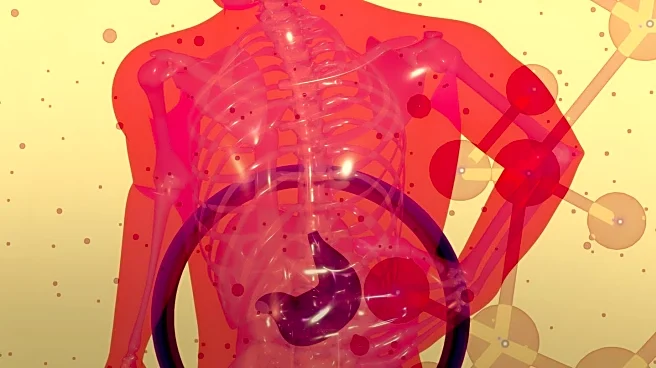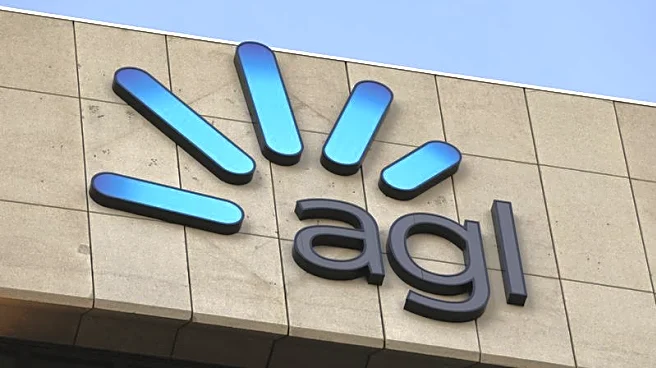What's Happening?
Researchers have identified GPX2 as a critical biomarker in diffuse gastric cancer (DGC), which plays a significant role in lipid homeostasis and mitochondrial function. The study highlights that GPX2 expression is elevated in malignant cells, correlating
with poor prognosis. GPX2 knockdown leads to reduced lipid droplet formation and mitochondrial dysfunction, enhancing sensitivity to cisplatin, a common chemotherapy drug. This discovery could pave the way for targeted therapies in treating gastric cancer.
Why It's Important?
The identification of GPX2 as a biomarker offers potential for developing targeted treatments for gastric cancer, improving patient outcomes. By enhancing cisplatin sensitivity, GPX2-targeted therapies could increase the efficacy of existing chemotherapy regimens, potentially reducing drug resistance. This advancement may lead to more personalized treatment plans, optimizing therapeutic strategies for patients with DGC. The research underscores the importance of molecular biomarkers in cancer treatment, influencing future clinical practices.
What's Next?
Further research is needed to explore GPX2-targeted therapies and their integration into clinical settings. Clinical trials may be initiated to assess the efficacy and safety of these treatments in enhancing cisplatin sensitivity. Collaboration between researchers and pharmaceutical companies could accelerate the development of GPX2 inhibitors, offering new hope for gastric cancer patients. Monitoring the long-term effects of GPX2-targeted therapies will be crucial in understanding their impact on cancer progression and patient survival.
















